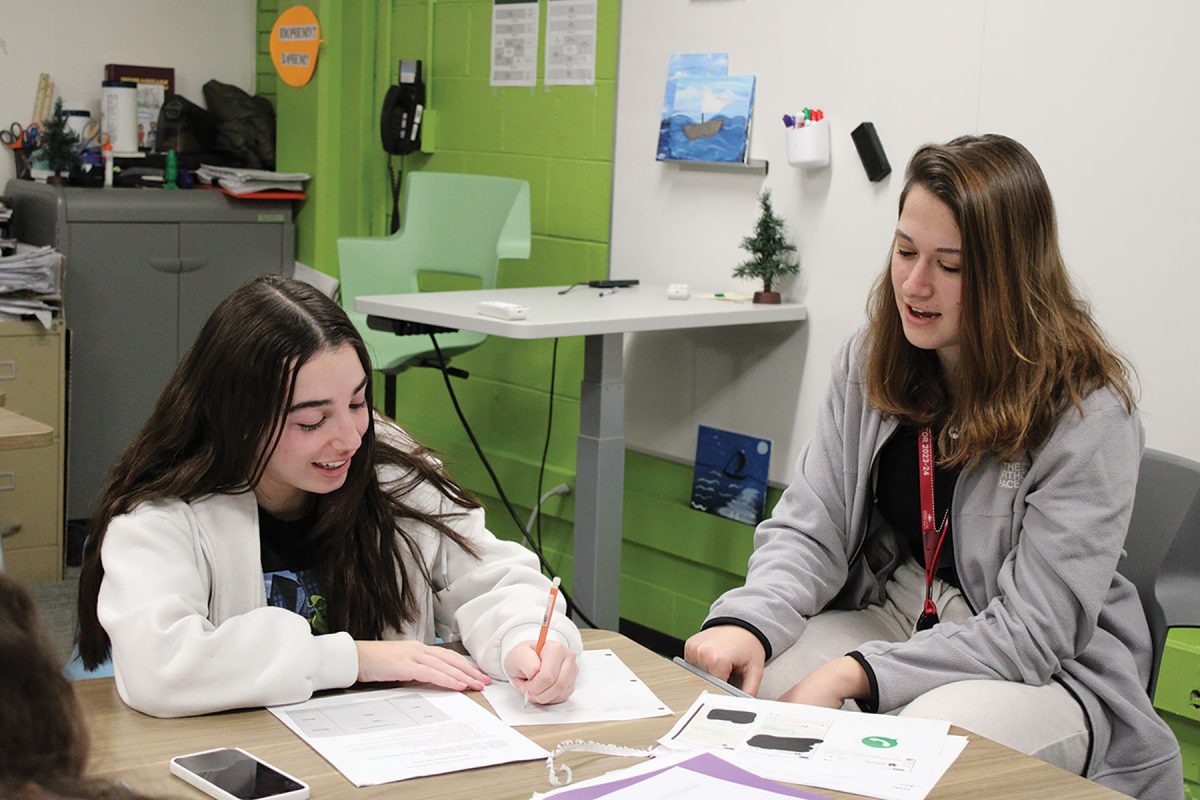In her life in Israel, 18-year-old Ronny Lichtenstein often hears sirens that indicate an attack on Israel. When she came to the United States as a Shinshinim volunteer, her friend told her about the sirens and rocket strike on Oct. 6. Initially, this was not surprising for her.
“I was awake until like 3 a.m. and [the attacks] started to get bigger and bigger,” said Lichtenstein. “And I think until two days later, we didn’t really realize how big the event and how awful [they were], the amount of people who got murdered and communities got destroyed. But I’d say that after a few hours where I was glued to my phone, I realized that [the attack] is not as usual. That it is a war.”
Since the start of the Israel-Hamas War, some of the saddest moments for Lichtenstein have occurredwhile scrolling through Instagram.
“You swipe up on Instagram and see people are missing and … when you realize that it is someone that you know, it’s really hard,” Lichtenstein said.
According to Noa Zerbib, 18-year-old Shinshinim program volunteer, the hardest part about being away from Israel during the war was when her friend from a Israeli boarding school died during combat.
“It was really hard because he died and everyone was [at] his funeral, and my friends [were] there and it totally broke them,” said Zerbib. “And I was not able to even go to that.”
Lichtenstein and Zerbib arrived in Chicago on Sept. 3 with the Shinshinim program, a gap year opportunity for Israeli teens who have graduated high school. Teens selected for the program postpone their mandatory military service by one year to volunteer in Jewish communities around the world.
“The most surprising thing I feel [is] how we managed to settle down kind of fast,” said Zerbib. “I already feel very comfortable here with the families that we stay in and with [the students] and with the teachers and with everyone, it just feels right.”
Lichtenstein and Zerbib are a part of the Chicago sector of the Shinshinim program and volunteer in public schools with Hebrew classes. At Glenbrook North, the Shinshinim program volunteers lead activities like games, discussions and events about Israeli culture and holidays. This allows students to learn and be more involved and connected with Israel.
“We want the students to have fun and get closer to Israel through us and our activities,” Lichtenstein said.
The Shinshinim program volunteers came to the United Statesfor one purpose,but now that everything has changed, they have another job, to represent Israel, Lichtenstein said.
“Recently, our job gained another responsibility and we felt our obligation to make our students know what happened on October 7 and since then, to answer [student] questions, to give [students] the information needed and also to show [students] we are a part of a one big united family, the Jewish people,” Lichtenstein said.
The Shinshinim volunteers went to rallies to support Israel and spread awareness about what others can do to help Israel.
Ronny Lichtenstein’s dad, Yoram Lichtenstein, who currently lives in Israel, is proud of how Ronny stays attentive to what goes on in Israel and is sharing the side of Israeli people within the United States, he said.
Due to the Israel-Hamas War, many Israeli citizens who have completed their military service were redrafted.
Both of Ronny Lichtenstein’s brothers and some of her friends are currently serving in Israel’s military, she said.
“It was a hard time processingand trying to understand that what I’m doing here is not less important than serving in the army right now,” said Ronny Lichtenstein. “[Once I realized], it made me feel better, and I actually feel that whatever we’re doing here is really important as well.”


